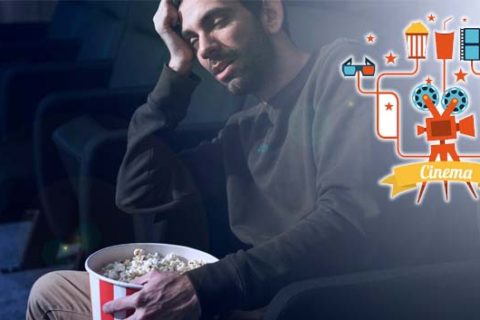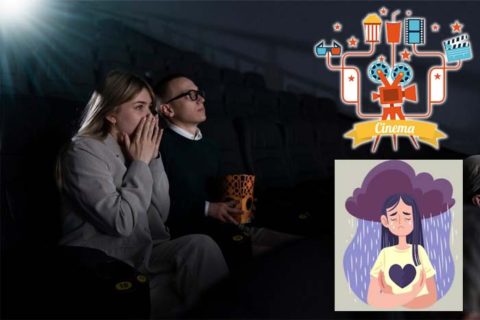You may often see crazy people on the way. Everyone seemed to avoid them and sometimes they were forcibly tied up because no one knew how to handle them. By the way, can crazy people be cured?
According to Slade & Longden (2015), as many as 0-58% of people with mental disorders recover. However, the number of people who recover also depends on the disorder they have. For example, only one in seven people with Schizophrenia reach the criteria for recovery. (Moher et al., 2009 p.1296). Overall, people with mental illness will be able to recover.
Before we talk about crazy people, let us start with the definition of recovery based on psychological criteria.
Recovery in Psychology
Now, we will explain the word recovery in the context of psychology. Unlike physical disorders, not all mental disorders will go away. Because the nature of mental disorders experienced by each individual is unique, sometimes their disorders can be cured or reduced.
People often add the word “living with” to emphasize that they struggle and endure to co-exist with their disorder that cannot go away. So, it is like they are suppressing their mental disorder. Usually, people who are able to live with their disorder can also be considered mentally healthy.
Who is a Crazy Person?
The word “crazy people” has many meanings. However, society largely sees a crazy person as someone who has a mental illness. This assumption is true, but still wrong. Considering how many types of mental illnesses there are, it seems unfair to call all sufferers crazy.
According to Parekh (2009), mental illness is a health condition that involves changes in emotions, thoughts, behavior, or a combination of all three. Just like any other illness, mental illness can be cured too. In fact, there are many individuals with mental illness who can live their daily lives.
Mental disorders are common. However, there is a lack of data on them, especially in Indonesia. Basic Health Research records from the Ministry of Health of the Republic of Indonesia (2018) found that:
-
- In 2018, the number of people over 15 years old with emotional disorders was 9.8%.
- In 2018, the number of people suffering from depression was 6.1%.
- In 2018, the number of people suffering from severe mental disorders such as Schizophrenia increased to 7%.
- In 2015, 15.8 families had members suffering from severe mental illness (Juniman, 2018).
Also, you should know that there are various kinds of mental disorders. Based on PPDGJ 3, there are two categories of mental disorders; mild and severe (Suryani, 2013).
-
- Mild mental disorders include: anxiety, depression, psychosomatic and violence.
- Severe mental disorders include schizophrenia, manic depression, and other psychotic disorders.
For those who want to read and know more about various mental disorders, you are able to buy or download PPDGJ 3 or DSM-V. For your information, both books are used by the Indonesian Psychologist community (PPDGJ Book) and Psychologists around the world (DSM Book) and are combined with mental health tests.
In general, the “crazy people” that we often see have the following characteristics:
-
- Seems to be seeing or hearing things which are not there.
- Looks like talking to himself or herself.
- Behave which is not in accordance with the conditions and environment.
The characteristics of “crazy people” that we often see correspond to the mental disorders of Delusion and Schizophrenia. Well, in the next paragraph, we are going to discuss Schizophrenia in more depth.
Mental Disorders: Schizophrenia
Schizo is a type of chronic, complex psychological disorder. Some of the symptoms that characterize schizo are delusions, hallucinations, disorganized behavior/speech patterns, and impaired cognitive abilities (Patel et al., 2014). Generally, a person suffering from schizo goes through three phases sequentially, namely Prodromal, Active, and Residual.
DSM-V states that the diagnostic criteria for Schizophrenia include two or more active-phase symptoms that are persistent and significant over a one-month period. Active-phase symptoms include:
-
- Delusion: A firm belief in something/theory which is impossible (Aquino, 2009). Individuals will continue to believe, even if it has been proven wrong (Grohol, 2017).
- Hallucination: Perceived sensory perceptions which are not based on reality (Aquino, 2009). The most common examples of hallucinations are individuals hearing voices in their head, seeing things that are not there (Grohol, 2017).
- Loss or reduction of certain functions, such as cognitive, emotional, socio-occupational abilities. Also, DSM-V adds affective flattening, alogia (minimal speech), and avolition (unable to initiate and sustain purposeful activities).
- Disorganized speech patterns
- Disorderly behavior or catatonic behavior
If individuals experience strange delusions or hallucinations that contain one voice commenting on one’s behavior/thoughts, or two or more voices speaking to each other. Only one symptom of characteristic A is required for diagnosis (DSM-V, 2013).
Well, the text above is a way to observe someone who may be suffering from schizo. But do not forget that not all crazy people we see are schizo. Do not immediately label all crazy people as schizophrenic. Because it is wrong and encourages bad stigma.
How to Cure Mental Disorders?
Mental disorders can be cured, but it is not as easy as giving cold medicine to a person with a cold. Mental disorders are serious and complicated. Thus, it needs the cooperation of the individual, the environment around the individual (especially the family), psychologists, and psychiatrists. Here is the explanation:
- Drug Use
Clozapine is one of the antipsychotic drugs which is often used to treat Schizophrenia. This drug works by blocking the dopamine receptors of the person taking it. Although this drug is very important in reducing the symptoms experienced, the efficacy of this drug does not apply to everyone. Each person is likely to have different results. However, keep in mind that antipsychotic drugs alone are not enough. They tend to be expensive and have side effects. Individuals who need help require to be supported by their surroundings (especially family), psychologists, and psychiatrists.
- The Role of Environment
A supportive environment is helpful in our daily lives. The same is also true for individuals suffering from Schizophrenia. Families who understand the symptoms that the individual is experiencing will be able to understand their actions better. Also, individuals have the option to attend group therapy with a therapist to help develop self-understanding skills, and learn more about living with schizophrenia.
- Psychologists and Psychiatrists
Individuals who experience Schizophrenia need to work with an expert psychologist or psychiatrist. It is highly recommended to find a therapist who understands their feelings, makes them feel calm or comfortable, and is professional. Also, individuals need to work with a psychiatrist to discuss the various antipsychotic options which are recommended or not recommended to be taken. Most antipsychotics or medications for mental illness can significantly reduce an individual’s symptoms. However, there are some minor side effects that need to be considered.
Conclusion
Psychologically, crazy people can still be cured. Their recovery process can start with giving them access to appropriate medication, creating a supportive environment, and cooperation between skilled psychologists and psychiatrists. It can be said that he or she has recovered if a mentally ill person can live with appropriate conditions and can function optimally.

A bookworm and researcher especially related to law and citizenship education. I spend time every day in front of the internet and the campus library.





